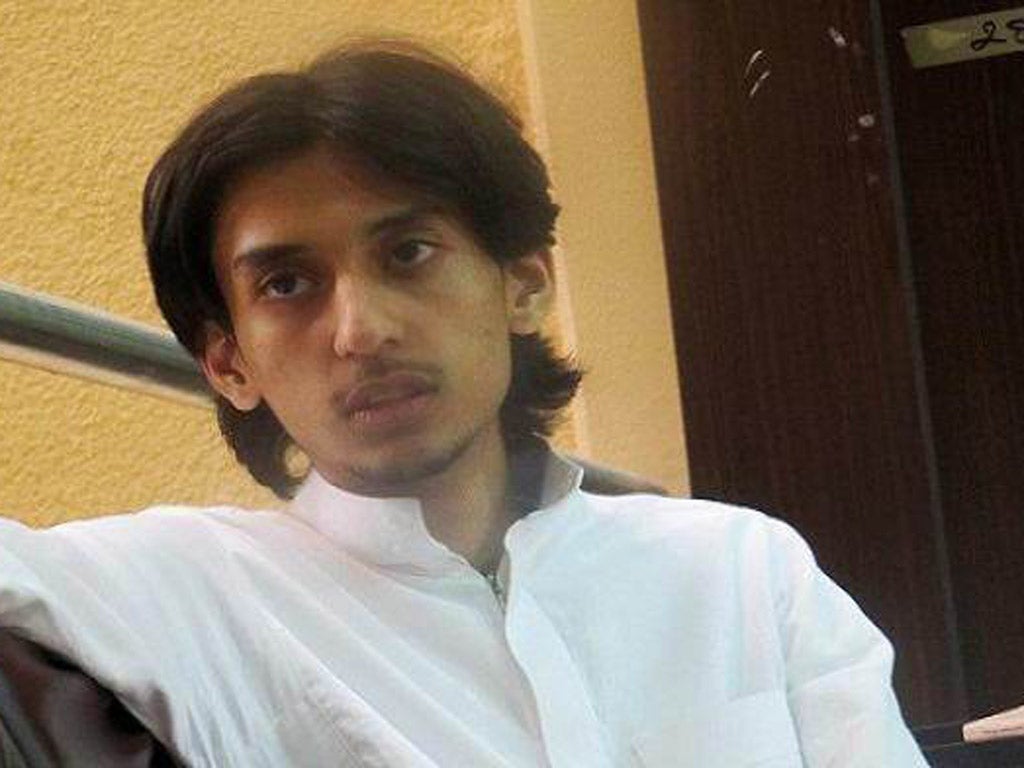Saudi journalist left facing the death penalty over Twitter posts
Extradition goes ahead for newspaper columnist accused of blasphemy against the Prophet

Your support helps us to tell the story
From reproductive rights to climate change to Big Tech, The Independent is on the ground when the story is developing. Whether it's investigating the financials of Elon Musk's pro-Trump PAC or producing our latest documentary, 'The A Word', which shines a light on the American women fighting for reproductive rights, we know how important it is to parse out the facts from the messaging.
At such a critical moment in US history, we need reporters on the ground. Your donation allows us to keep sending journalists to speak to both sides of the story.
The Independent is trusted by Americans across the entire political spectrum. And unlike many other quality news outlets, we choose not to lock Americans out of our reporting and analysis with paywalls. We believe quality journalism should be available to everyone, paid for by those who can afford it.
Your support makes all the difference.Defying pleas from human rights groups, Malaysia has extradited a young Saudi journalist who faces a possible death sentence in his home country for posting a tweet deemed to insult the Prophet Mohamed.
Lawyers for 23-year-old Hamza Kashgari, a columnist with the Jeddah-based Al Bilad newspaper, secured a court order yesterday afternoon preventing him from being deported – only to be told he had already been handed over to Saudi police, who were escorting him home on a private plane.
Mr Kashgari fled the kingdom last week after several of his comments on Twitter outraged Saudi clerics and their followers. He planned to seek political asylum in New Zealand, but was arrested last Thursday while in transit at Kuala Lumpur airport.
It was initially reported that Interpol had issued a red notice requesting his arrest, but Interpol has denied any involvement.
In one tweet, addressed to the Prophet, Mr Kashgari wrote: "On your birthday, I find you wherever I turn. I will say that I have loved aspects of you, hated others, and could not understand many more." In another, he wrote: "No Saudi women will go to hell, because it's impossible to go there twice."
Mr Kashgari received 30,000 angry responses within 24 hours. Thousands of people joined a Facebook campaign calling for his execution, while footage of one prominent cleric, Nasser al-Omar, sobbing about the contents of the journalist's comments was posted on YouTube. Although Mr Kashgari subsequently apologised and deleted the offending tweets, it did not mollify his critics. Amnesty International, Human Rights Watch and other organisations implored Malaysia, a largely Muslim country with a relatively tolerant reputation, not to deport him. Blasphemy carries the death penalty under Saudi Arabia's strict interpretation of sharia.
One of Mr Kashgari's lawyers, Fadiah Nadwa Fikri, condemned the deportation as "a blatant violation of the law and human rights".
She told Agence France-Presse that Mr Kashgari's mother and brother, who had flown to Malaysia to seek his release, were distraught. "They broke down in tears. They fear for his safety," she said.
Ms Fadiah said lawyers obtained the High Court injunction at 1.30pm, and were informed by police that the Saudi was still in the country. But they were later told that his plane had left at 10am.
In a statement, Malaysia's Home Minister, Hishammuddin Hussein, said the journalist was being repatriated under the country's extradition arrangements. "The nature of the charges against the individual are a matter for the Saudi Arabian authorities," he added.
Christoph Wilcke, senior Middle East researcher at Human Rights Watch, warned Mr Kashgari was unlikely to get a fair trial, since "Saudi clerics have already made up their mind that Kashgari is an apostate who must face punishment". He had urged Malaysia not to deport him, saying it would make the government "complicit" in his fate.
A Malaysian human rights lawyer, Edmond Bon, expressed disappointment at Malaysia's decision to "deport him to a potentially life-threatening punishment".
In an interview with The Daily Beast, a US website, Mr Kashgari had said he believed he was being made "a scapegoat for a larger conflict" between conservatives and liberals in Saudi Arabia.
Join our commenting forum
Join thought-provoking conversations, follow other Independent readers and see their replies
Comments